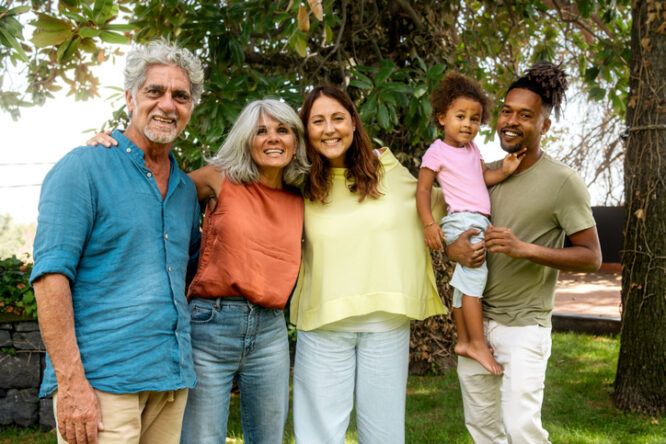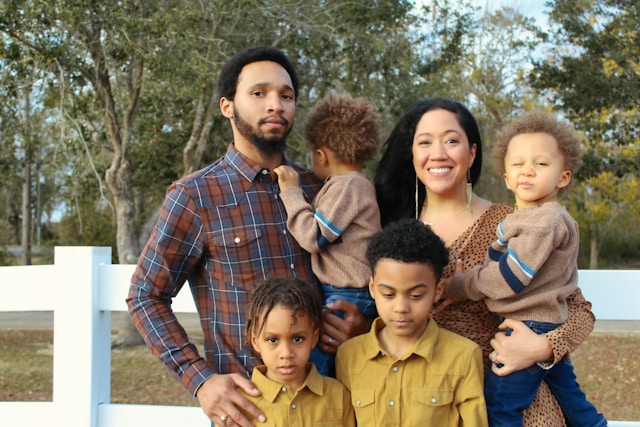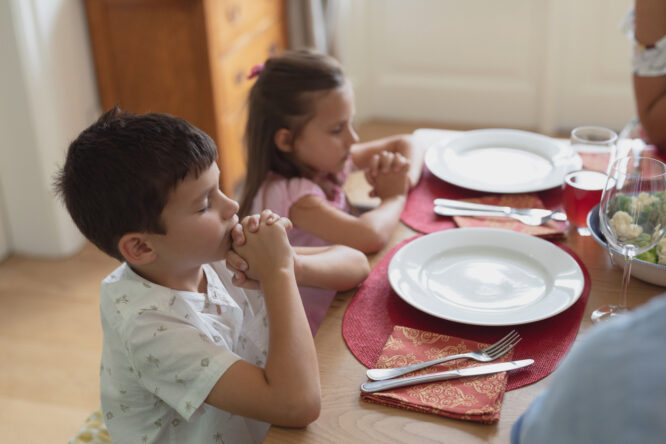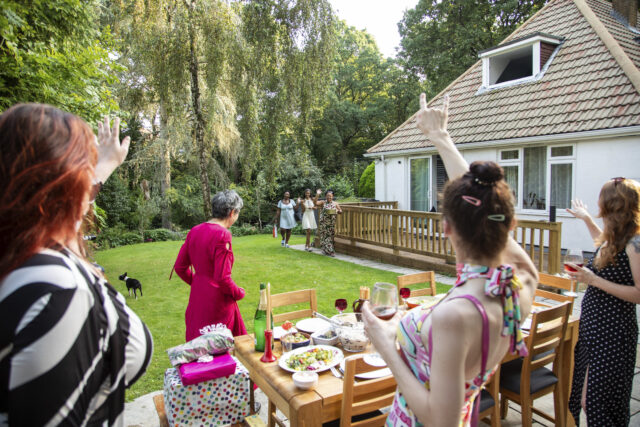We tend to have a lot of things in common with our family, but that doesn’t mean personalities will always match.

If you grew up in a family where volume was the norm and big personalities took up most of the space, being the sensitive one could feel like being in the wrong story altogether. You might have learned to shrink a bit, shut down, or disappear into yourself—not because you weren’t strong, but because your emotional radar worked differently. Here are some signs you were the one with the quieter feelings and softer energy (though there’s nothing wrong with that!).
1. You needed quiet time to recharge, but rarely got it.

In a loud family, everything tends to happen in groups, at volume, and on short notice. If you were the one sneaking off to read, nap, or just be alone in your own head, it might’ve looked like you were being antisocial—but really, you were protecting your peace.
Being around constant noise or intense energy isn’t just tiring for sensitive people—it can be downright draining. And if your need for stillness wasn’t respected, you probably spent a lot of your childhood feeling overstimulated but unable to explain why.
2. You cried easily, and got teased for it.

If you showed emotion openly, there’s a good chance it wasn’t always met with empathy. Maybe someone laughed, told you to toughen up, or rolled their eyes like your feelings were a burden. In some families, tears are treated like weakness rather than a signal something matters deeply to you.
As time went on, you might’ve learned to hide your feelings, or apologise for them. However, deep down, they never went away. Sensitive kids don’t cry for attention. They cry because the world hits a little harder.
3. Loud arguments left you feeling shaky for hours.

Even if the rest of your family bounced back from a fight like nothing happened, you probably carried the emotional impact long after the shouting stopped. You might’ve replayed it in your head, worried about what it meant, or needed time to calm your nervous system down.
For sensitive people, conflict isn’t just noise—it’s a whole-body experience. In homes where yelling was normal, that could mean feeling constantly on edge, even if no one else seemed bothered.
4. You noticed things other people brushed off.

Maybe you could tell when someone was upset before they even said a word, or you picked up on small tone changes, facial expressions, or changes in energy. You saw and felt what everyone else missed. In families that move fast and speak loudly, these little emotional cues often get ignored. But for you, they were everything. Your sensitivity made you the quiet observer—the one who noticed the undercurrents no one talked about.
5. Jokes at your expense hit you harder than expected.

Teasing is often a love language in loud families, but for sensitive people, it can sting in ways that linger. Even if people claimed they were “just messing around,” you might’ve internalised those jokes as real critiques. You weren’t being too sensitive. You were picking up on the fact that not all jokes are harmless, especially when they target soft spots. Without a space to say, “That actually hurt,” those little jabs add up as time goes on.
6. You felt responsible for keeping the peace.

If tensions were high or people were fighting, you may have found yourself trying to smooth things over, even if it wasn’t your job. Sensitive kids often take on the role of emotional sponge, soaking up everyone else’s stress. Being the peacekeeper might’ve made you mature quickly, but it also meant you put your own needs last. You learned to be careful with everyone else’s moods, even when no one seemed careful with yours.
7. You found comfort in routine or predictability.

While other people in your family thrived on chaos or spontaneity, you probably felt safest when things were calm, structured, or familiar. Loud families often don’t notice how much unpredictability can shake a sensitive person. Whether it was eating the same breakfast every day, rewatching the same films, or having a corner to retreat to, those little rituals weren’t just habits—they were anchors. They gave your system a chance to settle.
8. You took things personally, even when they weren’t meant that way

In a house full of strong personalities, someone’s offhand comment or bad mood might have felt like it was aimed directly at you. Even if logically you knew it wasn’t, your nervous system read it as threat. It’s not because you were being dramatic—it’s because you were wired to feel deeply. When you’re surrounded by people who speak before thinking, that sensitivity can feel like a curse, but it’s not. It just needed more room to breathe than you were given.
9. You felt most understood by pets, books, or music.

If the humans in your house didn’t really “get” you, you might’ve bonded with pets or escaped into fictional worlds where you could just exist without having to explain yourself. Sensitive kids often find connection in places that offer quiet acceptance. Those aren’t just coping mechanisms—they’re lifelines. When real-life conversations felt too fast, too loud, or too dismissive, these softer sources gave you the understanding you were missing.
10. You hesitated to share your true opinions.

If speaking up often led to being talked over or made fun of, you may have learned to keep your thoughts to yourself. Sensitive kids tend to process slowly and deeply, which can be at odds with families that value quick comebacks and strong opinions. You might still be unlearning the idea that your voice only matters if it’s loud. However, the truth is, quiet insight can be just as powerful. You don’t need to dominate a room to deserve space in it.
11. You felt weird for caring “too much.”

Maybe you cried during adverts or got deeply upset by a sad story no one else seemed to notice. Maybe you got overwhelmed by injustice, even when it had nothing to do with you. Sensitivity doesn’t always look logical, but it always means you’re connected. In a loud family, this kind of emotion can be brushed off as dramatic or “extra.” But your ability to care deeply isn’t something to tone down—it’s something to protect.
12. You needed time to recover after social stuff.

Family gatherings, holidays, or even dinner could feel like a lot. Even if you enjoyed the people around you, your body and brain likely needed a reset after so much energy. Being sensitive doesn’t mean being antisocial. It just means your system processes more—and needs more space to recalibrate afterward. In a family that never slows down, that need often went unnoticed.
13. You still flinch at loud voices, even when they’re not angry.

Years later, raised voices might still make you feel like something’s wrong, even if no one’s upset. That reaction is muscle memory. It comes from growing up in a space where volume often meant tension. Being the sensitive one in a loud family leaves a mark. But it also builds a kind of emotional fluency most people never develop. You feel more, yes, but you also understand more. That’s something to hold onto, not hide.




